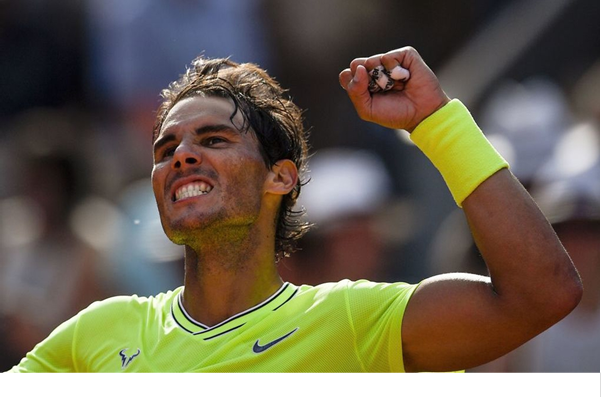Ask a group of tennis fans about their picks for the greatest players in history, and you will likely get a mix of different answers. Roger Feder, of course; Serena Williams, naturally; Bjorn Borg, who holds a ridiculous 89.8% win rate in Slams; Steffi Graf, Martina Navratilova, Novak Djokovic, Margaret Court – there are so many players for whom fans could make a passionate case to be the greatest.
And then, there is Rafael Nadal. Many columns will have been devoted to the Spaniard’s career this week after he equalled Federer’s haul of 20 Grand Slams. Nadal’s record at Roland Garros reads as 100 ticks in the win column and just two crosses in the loss column. It’s surreal, and there is little argument that he should top any list of the greatest French Open champions in history. But when it comes to Nadal’s ranking among the all-time best, it becomes a bit more difficult to decide where to place him.
Most will agree that he should be on or near the top, but we could make similar arguments for several other players. Conceivably, the 34-year-old could match Williams’ record of 23 Slams, and perhaps even exceed Margaret Court’s all-time best haul of 24, especially if he continues his supreme dominance at Roland Garros. Would that be enough to put Nadal as the best of all time? It’s difficult to say.
Debate is fun, but pointless
The whole debate is pointless, of course. It’s merely a framework for fans – and sports journalists – to put forward a point of view. An individual occurrence can alter our perceptions of greatness on the court. Say, for example, Serena William’s Australian Open victory when it later transpired the American was pregnant. That might just be the greatest athletic achievement in history, not just a sign of the best tennis player. But others point to the lack of top tier talent faced by Williams, especially in the 2010.
Similarly, the debate can go head-first into the territory of ‘what if’. Consider a scenario where Bjorn Borg didn’t retire at 26 and played for another decade. Or, imagine how Roger Federer’s Wimbledon record would have been impacted if Pete Sampras, had like the Swiss, been born in August 1981 instead of August 1971? As we mentioned, all of it is fairly pointless. It’s fun to imagine, and it can make for healthy debate. But there can never be a right answer.
Will French dominance hurt Nadal’s legacy?
As for Nadal’s legacy as a great, however, you have to wonder whether his dominance on clay will impact his standing among the greats. The way he dismantled Djokovic in the final underlined his imperiousness on the surface – he has no equal. However, the danger is that we look back on his career and muse that he did one thing (playing on clay) better than anyone else in history, and he was very good, but not the best, on other surfaces.
Is that a fair assessment of Nadal’s career? Probably not. His record of four US Open titles is just one shy of the best in the Open Era, and there is a fair chance that he will add more before he retires. Sure, he has but one Australian Open victory and two at Wimbledon, but we can then point to the likes of Federer and Djokovic’s solitary wins in the French Open.
It’s almost ironic that Nadal’s success at the French Open might hurt his standing in the debate around the best player in history. Even if he manages to reach the unprecedented number of 25 Slams – it is conceivable – there might always be that clay court asterisk beside his name. But that’s the nature of these debates, and we should simply enjoy the time we have left to watch the phenomenal Spaniard play his game, regardless of the surface.

